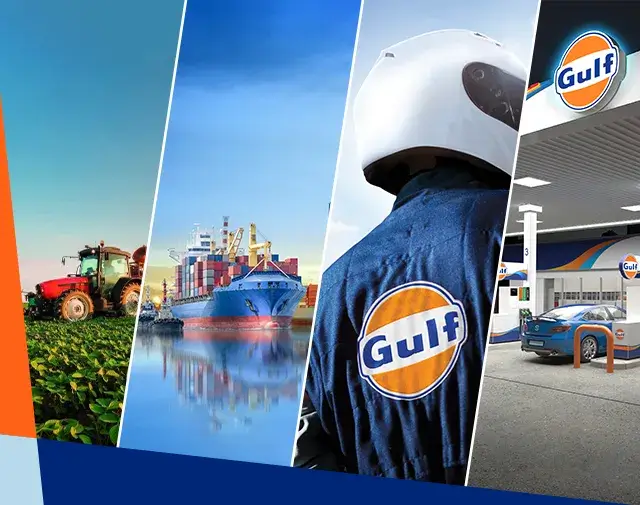The effect engine oil has on fleet performance
01 Sep 2025

When it comes to fleet operations, unexpected vehicle breakdowns can have a significant impact on the bottom line.
Beyond the immediate repair costs, downtime can lead to lost productivity, delayed deliveries and strained customer relationships. This is where preventative fleet maintenance comes in - and why it is critical for optimising fleet performance.
In this blog, we explore the role that engine oil and lubricants play in preventative maintenance. But first, let’s discuss the demands of modern engines and how this influences engine oil performance.
Understanding modern engines needs
Modern engine technology is a double-edged sword for fleet managers. While it delivers more power and cleaner emissions, it also puts greater stress on engine oil.
Here are some of the reasons why.
- Turbocharged engines: While these engines are powerful and compact, they run hotter and faster. As they operate under more intense conditions, they create a more hostile operating environment for lubricants.
- Emission Control Systems: Newer engines use emission-reducing technology like exhaust gas recirculation (EGR) and selective catalytic reduction (SCR). These systems work hard to reduce nitrogen oxide emission levels and need advanced formulations of lubricants to run effectively.
- Diesel Particulate Filters (DPF): Modern low-emission engines use DPFs to manage particulates emitted as soot. Low SAPS (Sulphated Ash, Phosphorus & Sulphur) oils are crucial to keep these filters functioning properly and prevent clogging.
- Biodiesel usage: This eco-friendly fuel can be tricky with older engines. It can thicken the oil, leading to wear and tear, or cause sludge buildup.
Given these complex challenges posed by modern engine technologies, the solution lies in selecting the right engine oils and lubricants that can withstand these demanding conditions while optimising performance and protection.
Why the right engine oil is important for fleet performance management
Selecting the appropriate engine oil is not just a routine maintenance task—it's a critical decision that can significantly impact your fleet's performance, efficiency and longevity. Here's why it matters:
1. Enhanced protection against wear and tear
- High-quality engine oils that use advanced formulas create a robust protective film on engine components, which dramatically reduces friction and prevents excessive wear.
- Modern engine oils are designed to maintain their protective properties even under high temperatures and pressures, so your truck’s engine is safeguarded in all operating conditions.
2. Improved engine cleanliness
- Premium engine oils contain detergents and dispersants that actively clean engine internals, preventing sludge buildup and ensuring efficient operation.
- These oils effectively suspend and neutralise harmful contaminants, keeping them from depositing on crucial engine parts.
3. Optimised performance and efficiency
- The right engine oil can improve fuel economy by reducing internal friction, potentially leading to significant cost savings across your fleet.
- Advanced oils contribute to cleaner engine operation, helping your fleet meet stringent emission standards and reduce its environmental footprint.
- By minimising energy loss due to friction, the correct engine oil allows engines to operate at peak efficiency.
4. Extended engine lifespan
- Quality engine oils provide superior protection against corrosion, safeguarding engine components from chemical degradation.
- They maintain their viscosity across a wide temperature range, ensuring consistent protection during cold starts and at high operating temperatures.
- By providing comprehensive protection, the right oil can significantly extend the intervals between major engine overhauls.
5. Compatibility with modern engine technologies
- Specially formulated oils can withstand the extreme conditions in turbocharged engines, preventing oil breakdown and coking.
- Low SAPS (Sulphated Ash, Phosphorus & Sulphur) formulations are designed to protect and maintain the efficiency of emission control systems like DPFs and catalytic converters.

Utilising other lubricants
While engine oil is crucial, other lubricants play vital roles in fleet efficiency:
- Manual and automatic transmission fluids: Protect against wear, pitting, and corrosion in transmissions and gears
- Power steering fluid: Protects power steering units
- Greases: Specialised products for chains, wheel bearings, coupling devices, and fifth wheels
How do advanced lubricants optimise fleet performance?
Choosing the right lubricants for commercial vehicles is an investment in your fleet's future. It's not just about keeping engines running—it's about optimising their performance, extending their operational life and enhancing your bottom line.
-
Reduced total cost of ownership
Extended drain interval lubricants minimise the frequency of oil changes, resulting in cost savings on both lubricant and labour expenses.
-
Enhanced engine protection
Advanced lubricants are formulated to combat wear and tear, minimise deposit formation, and prevent corrosion. This additional protection extends engine lifespan and reduces the risk of unexpected breakdowns.
-
Improved fuel economy
Some lubricants can contribute to fuel efficiency gains of up to 1.2%. This translates directly to lower operating costs and a reduced environmental footprint.
-
Extended drain intervals
Advanced lubricants offer extended drain intervals of up to 150,000 kilometres. This minimises downtime associated with frequent oil changes and maximises vehicle uptime, boosting overall fleet efficiency.
However, it’s important to note that actual oil drain intervals and fuel economy benefits depend on several factors including engine type, operating conditions, service history and fuel quality.
-
Emission standards compliance and after-treatment system protection
Some lubricants are formulated to meet stringent emission regulations while safeguarding vital after-treatment systems like Diesel Particulate Filters (DPFs). This ensures clean operation and regulatory compliance.
By combining advanced lubricants with strategic maintenance practices, optimised fleet performance management can enhance reliability and cost-effectiveness.
Remember these key practices:
- Conduct regular oil analysis
- Select appropriate long-drain oils
- Adhere to manufacturer guidelines
Always consult with your vehicle manufacturers and oil suppliers to ensure that any changes to your maintenance practices align with warranty requirements and are suitable for your specific fleet needs.
Enhancing fleet performance for the long run
While lubricants may seem like a minor expense, their effective use plays a crucial role in preventing costly disruptions. A well-maintained fleet, lubricated according to manufacturer recommendations, is less likely to experience unexpected breakdowns.
A proactive fleet maintenance strategy, which includes regular lubricant checks and changes, reduces downtime, extends vehicle life, improves fuel efficiency and enhances overall fleet performance.
By investing in preventive maintenance, fleet managers can minimise the hidden costs associated with downtime and ensure that their operations run smoothly and efficiently.
Ready to optimise your fleet?
Explore heavy duty engine oil and lubricants from Gulf Oil and maximise performance, reduce downtime and improve the bottom line of your commercial fleet.

